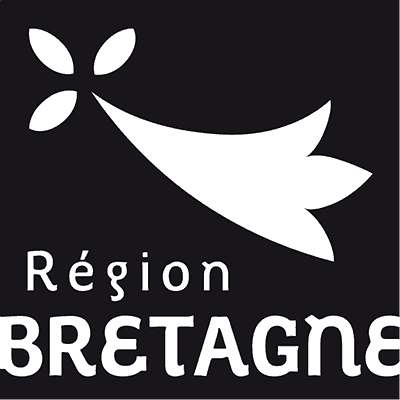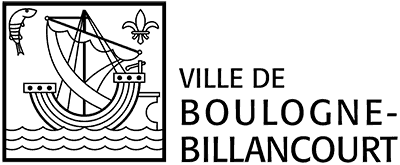[COMMUNAUTES] Générations Low-tech
Publication date : 11 april 2023
Autors : Sciences Po group - Low Tech : Augustin, Anjali, Marius, Sasha, Ombeline, Emma, Graziella, Marie.
Location : Grenoble
From september to december 2022, une série de rencontres insolites eut lieu autour de la place Saint-Bruno à Grenoble…
This is the story of an intergenerational project in which students, retirees, middle school students and volunteers from the Low-Tech Lab Grenoble and the Maison des familles came together to reflect on the use of technology.
One place, two worlds apart #
When was the last time you discussed social change with someone from a different generation than you, who was not your grandfather or granddaughter?
You can’t remember?
Neither did we, before this project. And yet the different generations live together, cross paths, see each other. They share the same city, the same building, the same market, the same square. But they don’t talk to each other, or they talk very little. Is it because of disinterest? Or is it simply because there is no opportunity for all age groups to talk to each other?
The “Générations Low-Tech” project was born of this desire to encourage the emergence of an intergenerational link in the heart of the Saint-Bruno district of Grenoble. This former working-class suburb, which has become a vibrant neighbourhood with multiple identities, has a home for the elderly, a middle school, and an association that helps families in precarious situations in its central square. Aude, a local resident and volunteer in several associations, including the Low-Tech Lab in Grenoble, decided, one evening while confined, to establish contact between these close but distinct worlds. Together with her son, she sent Morse code signals to the residents of the nearby EHPAD (). At the same time, Catherine, a French teacher at the school, initiated a first exchange of letters between teenagers and teachers from the middle school and residents of the EHPAD who volunteered. The links were forged and strengthened through new correspondence, meetings and projects.
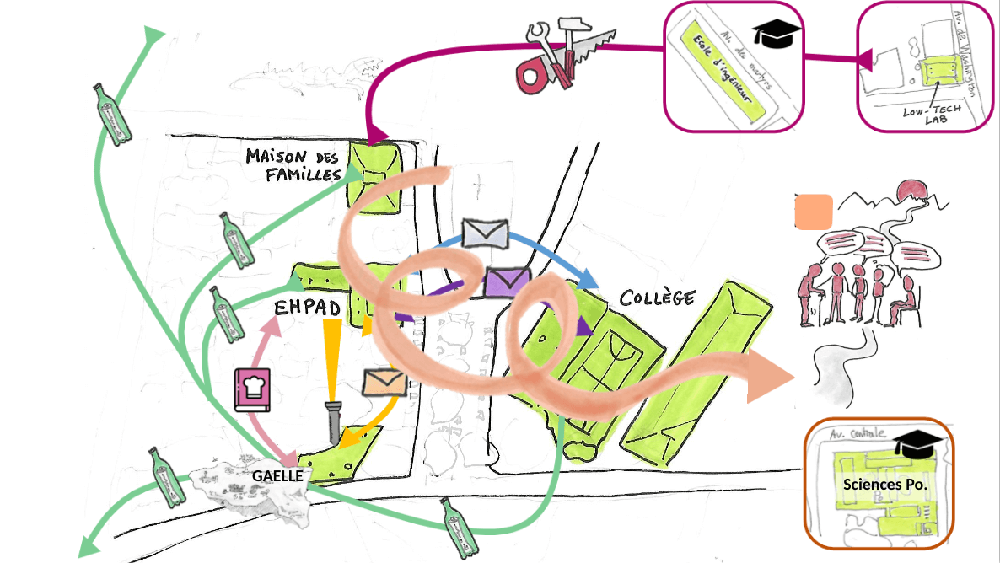
A new intergenerational experience around low-tech #
It is in this context that an enthusiastic trio, determined to extend these links, contacted a group of students from Sciences Po Grenoble. Aude, accompanied by Françoise, the EHPAD animator, and Catherine, a French teacher at the middle school, proposed a mission: to continue this dialogue between the different generations of Saint-Bruno around the theme of low-tech and, more generally, the ecological transition.
By crossing the question of the intergenerational link and of the use of technology, we realised that in a way, low-tech had always existed: it was still omnipresent in society at the time of our grandparents, since there were no other ways of doing things. This is what makes the joint involvement of EHPAD residents and schoolchildren in this project so meaningful: they are indeed “the two ends of our world, the oldest and the youngest”, in the words of Romain, a volunteer at the Low-Tech Lab in Grenoble. Between people who have lived through the war and known a world without television, telephone, washing machine or supermarket, and people born in the era of all-digital technology, unbridled globalisation, social networks, ever faster transport, etc., there is a world; and it is this world that we sought to explore.
The project ran from mid-September to mid-December 2022. During these three months, we organised six meetings of various formats. First, we met individually with the residents of the EHPAD, then with the schoolchildren, to familiarise these two audiences with the theme of low-tech and to gauge their initial reactions and opinions. We then organised two collective meetings, one in the college’s CDI (center of documentation and information), the other in the common room of the EHPAD, during which small groups made up of a resident, two or three college students and a student or a supervisor were able to exchange their points of view and their personal stories related to the evolution of technology. In addition to the debate, the groups worked on writing articles for the special edition of the school newspaper, Le P’tit Fantin.
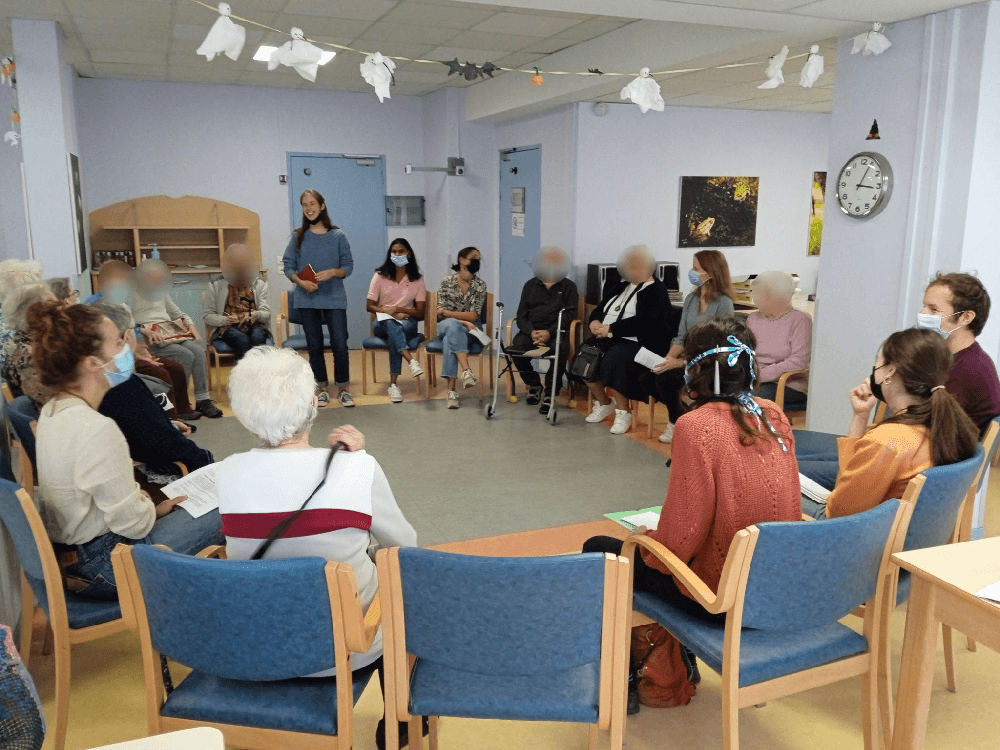
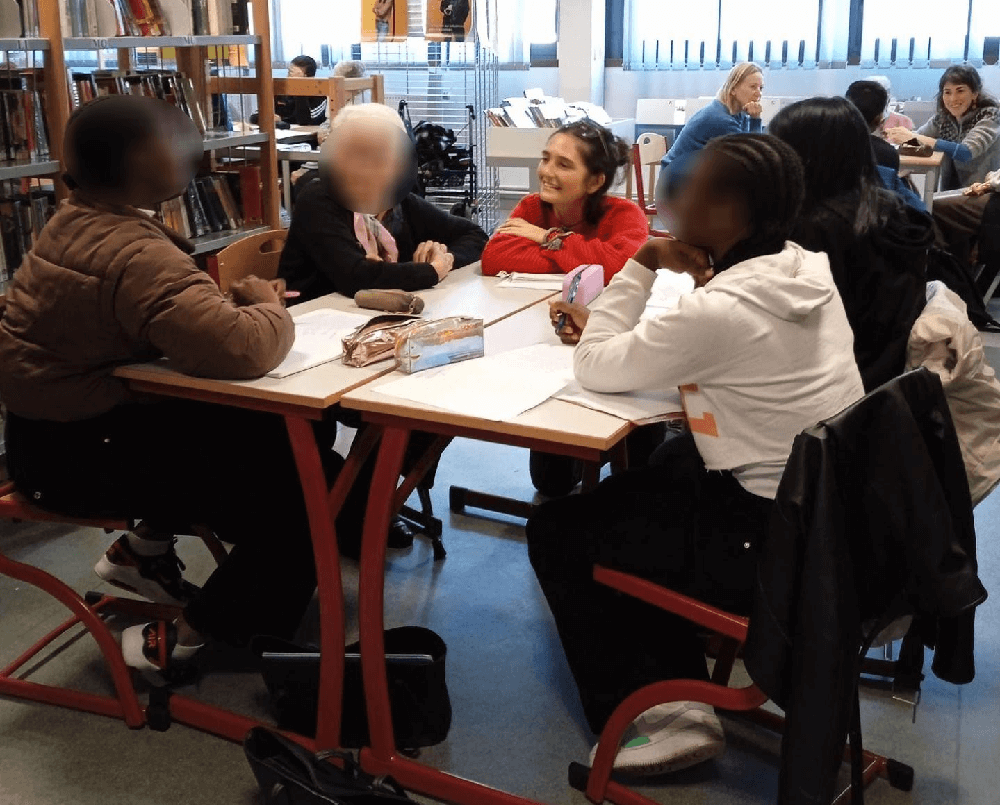
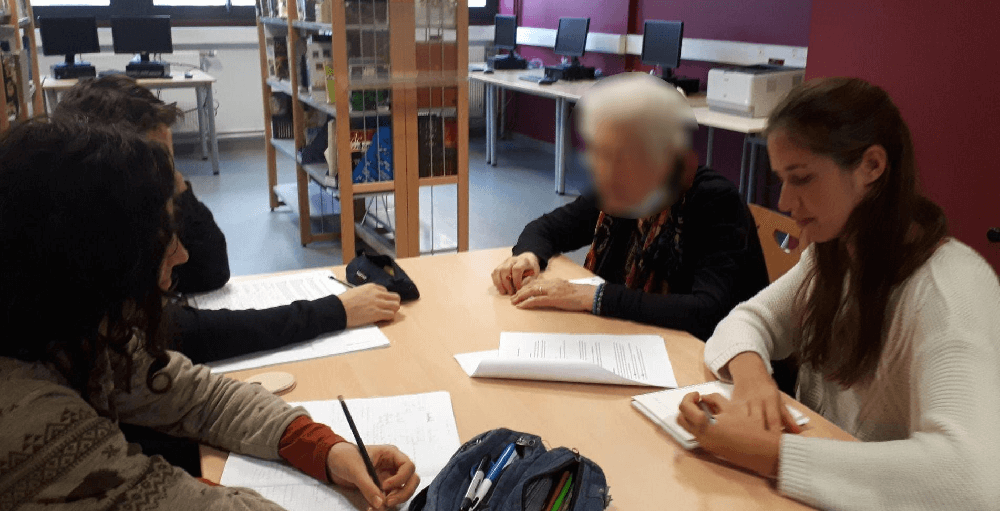
Finally, the last meeting of the participants took place on the occasion of the defense of our project, at Sciences Po Grenoble, on a very special morning in December when the snow decided to complicate the journey of the inhabitants of Saint-Bruno… A moving and warm moment.
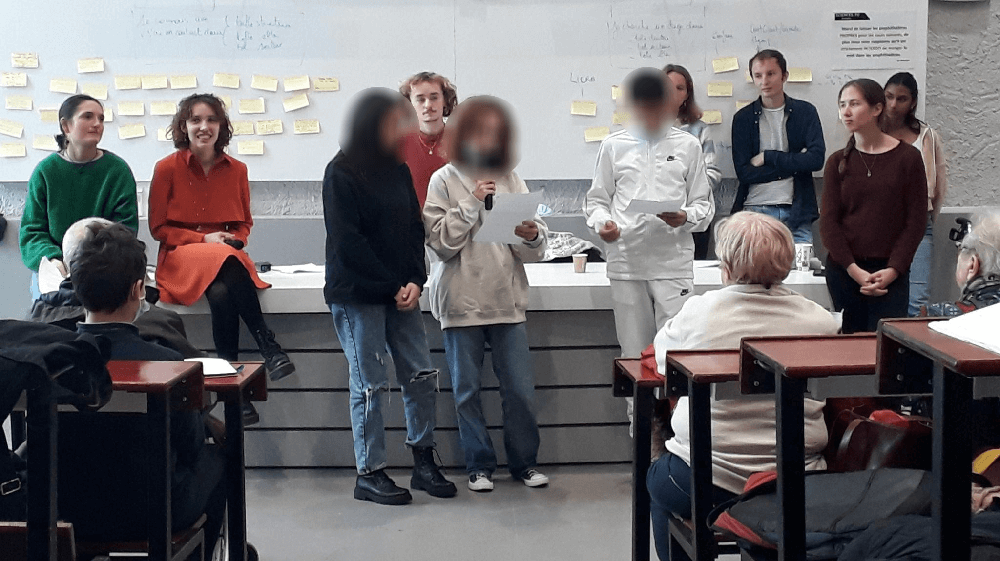
Our view as political science students #
At the end of the project, we wrote a report to analyse the content of the exchanges from a sociological and political point of view, in order to broaden the reflection and to look for the multiple and complex issues of low-tech that are reflected in this experimentation on the scale of the Saint-Bruno district.
The meetings raised questions about the gain in time and freedom brought about by technology (particularly for women, in the context of household tasks), counterbalanced by the loss of conviviality (the example of evening gatherings was mentioned) and know-how (like the many trades that have disappeared: lamplighter, potter, grinder, etc.). The theme of comfort and ease is also addressed: in their youth, the life of the residents of the EHPAD was, in many ways, harsher, between washing in basins, the absence of toilets in the house, or the simple food, linked to the cycles of the seasons, to the bad harvests, even to the rationing and the shortages of the war - incomparable with the food overabundance that the great majority of the population of the developed countries enjoys today, at the price of a dependence on imports, on chemical inputs, on heated greenhouses… Another central question raised by the residents of the EHPAD is that of satisfaction and happiness: “why are today’s young people never satisfied? ” “are you aware of how lucky you are to ‘have it all’?” - This is a contradictory question, however, as the residents repeatedly state that their happiness was disconnected from their comforts or possessions: “we had nothing, but we weren’t unhappy”. The omnipresence of mobile phones and screens also stands out: what room is left for real life, encounters, exchanges, in the face of this increasingly invasive virtual life (which yet, in its own way, creates links, as the participants acknowledge, in this perpetual ambivalence of technology). On the other hand, the schoolchildren ask themselves: how did we meet, look after ourselves, have fun in this society without the current means of communication?
Despite the critical view of technology held by some residents who were particularly active during the debates, the exchanges surprised us greatly in their conclusions: participants of all ages often ended up, particularly in their articles for the college newspaper, with a consensus on the progress brought about by technology, rather than a nuanced statement that reflected the limitations mentioned above. For example, one group titled their article “The harshness of the old days without technology”. Why such optimism about technology? On the older side, we think that past experience of hunger, cold or hard work may explain a certain fascination with technology. For schoolchildren, the term generational amnesia, proposed by the psychologist Peter Kahn, may be an answer: it indicates that each new generation experiences a more degraded environment than the previous one, but in the absence of a point of comparison with the past, takes this degraded state as the normal one - thus preventing awareness and action to recreate a healthy natural environment.
Perhaps our approach also played a role in this surprising conclusion, which focused on the benefits of technology. We tried to capture the participants’ views in the rawest, most untouched way possible, without first filling their minds with knowledge about low-tech and its justifications. This limited the participants’ ability to discuss issues such as sobriety, degrowth, the reappropriation of know-how, etc. The issues at stake in technology, as well as the alternatives to it, remain relatively unknown outside the academic or activist sphere, and would have required a more in-depth contextualisation.
In sum, our project opened a door, and was a great experience for each participant. But behind this door, there are still many other paths to be explored, whether in the format of the meetings, in the themes addressed, or in the analysis of the exchanges… Who will carry on?
Many thanks for these magical moments.
The Sciences Po - Low Tech group: Augustin, Anjali, Marius, Sasha, Ombeline, Emma, Graziella, Marie.
